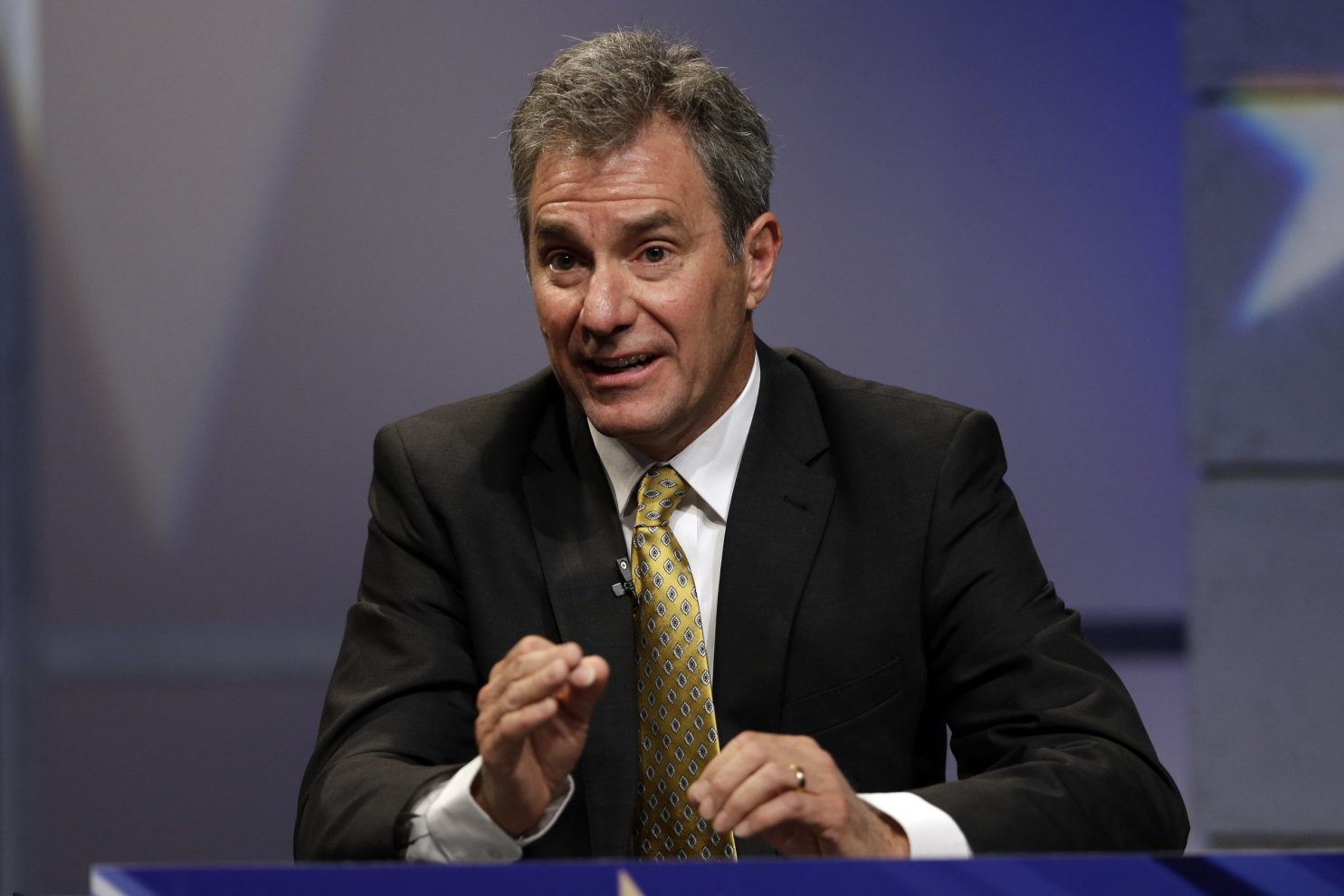Thought of the Day

Time, like a snowflake, disappears while we’re trying to decide what to do with it.


Time, like a snowflake, disappears while we’re trying to decide what to do with it.

By STEVE REED AP Sports Writer
CHARLOTTE, N.C. (AP) — Carolina Panthers cornerback Jaycee Horn escaped serious injury on Wednesday morning after being involved in a car accident on his way to the team’s stadium.
Horn injured his left thumb and sat out a joint practice with the Cleveland Browns.
Panthers coach Dave Canales said Horn will be day to day moving forward.
“I’m glad that Jaycee was OK,” Canales said. “He did have to have a few stitches in his left thumb area. So they got that all cleaned up and sutured up. … It doesn’t seem like anything else happened, but you know we’re just gonna kind of evaluate him each day.”
Canales said Horn will not play in Friday night’s preseason game against the Browns, but hopes to have him available for the team’s second preseason game against Houston on Aug. 16.
“Hopefully we can get him turned around so we can take advantage of an opportunity in Houston for that game, which was kind of the plan all along,” Canales said.
Horn was alone in his car when the incident occurred at an intersection just outside the stadium. The team announced that no one involved in the incident was transported by emergency medical personnel. Horn was later evaluated by team medical personnel.
Horn took in practice from the sideline in street clothes and was seen moving around and joking with teammates.
The Panthers signed Horn to a $100 million contract extension earlier this offseason, which at the time made him the league’s highest-paid cornerback. Horn was the eighth overall pick in the 2021 draft by the Panthers out of South Carolina.

By JOSH BOAK Associated Press
WASHINGTON (AP) — Apple CEO Tim Cook is expected to join President Donald Trump at the White House on Wednesday to announce a commitment by the tech company to increase its investment in U.S. manufacturing by an additional $100 billion over the next four years.
As part of the Apple announcement, the investments will be about bringing more of its supply chain and advanced manufacturing to the United States as part of an initiative called the American Manufacturing Program, but it is not a full commitment to build its popular iPhone device domestically.
“This includes new and expanded work with 10 companies across America. They produce components — semiconductor chips included — that are used in Apple products sold all over the world, and we’re grateful to the President for his support,” Cook said in a statement announcing the investment.
The new manufacturing partners include Corning, Coherent, Applied Materials, Texas Instruments and Broadcom among others.
Apple had previously said it intended to invest $500 billion domestically, a figure it will now increase to $600 billion. Trump in recent months has criticized the tech company and Cook for efforts to shift iPhone production to India to avoid the tariffs his Republican administration had planned for China.
While in Qatar earlier this year, Trump said there was “a little problem” with the Cupertino, California, company and recalled a conversation with Cook in which he said he told the CEO, “I don’t want you building in India.”
India has incurred Trump’s wrath, as the president signed an order Wednesday to put an additional 25% tariff on the world’s most populous country for its use of Russian oil. The new import taxes to be imposed in 21 days could put the combined tariffs on Indian goods at 50%.
Apple’s new pledge comes just a few weeks after it forged a $500 million deal with MP Materials, which runs the only rare earths producer in the country. That agreement will enable MP Materials to expand a factory in Texas to use recycled materials to produce magnets that make iPhones vibrate.
Speaking on a recent investors call, Cook emphasized that “there’s a load of different things done in the United States.” As examples, he cited some of the iPhone components made in the U.S. such as the device’s glass display and module for identifying people’s faces and then indicated the company was gearing to expand its productions of other components in its home country.
“We’re doing more in this country, and that’s on top of having roughly 19 billion chips coming out of the US now, and we will do more,” Cook told analysts last week, without elaborating.
News of Apple’s latest investment in the U.S. caused the company’s stock price to surge by nearly 6% in Wednesday’s midday trading. That gains reflect investors’ relief that Cook “is extending an olive branch” to the Trump administration, said Nancy Tengler, CEO of money manager Laffer Tengler Investments, which owns Apple stock.
Despite Wednesday’s upturn, Apple’s shares are still down by 14% this year, a reversal of fortune that has also been driven by the company’s botched start in the pivotal field of artificial intelligence.

RALEIGH, N.C. (AP) — Individuals in central North Carolina counties whose homes and belongings were damaged by massive rains last month from Tropical Storm Chantal can now seek state-funded financial grants for temporary assistance.
The aid for residents in eight counties within or near the Raleigh-Durham-Chapel Hill area is available after Gov. Josh Stein issued a state disaster declaration on Tuesday.
As much as 9 to 12 inches (22.9 to 30.5 centimeters) of rain fell in the region at the close of the July 4 weekend, sending some rivers to record-breaking levels, affecting public water systems and damaging homes and businesses. There were at least six storm-related deaths, law enforcement agencies said.
Stein also wrote President Donald Trump and the Federal Emergency Management Agency on Tuesday asking them to issue a federal major disaster declaration that would accelerate federal aid to help local governments with the costs of rebuilding roads and utilities, and for removing debris. Public assistance damage estimates have already totaled more than $42 million, according to Stein’s office.
Stein’s state-of-emergency declaration three weeks ago in 13 central counties was designed to jump-start the process to seek federal recovery assistance.
Stein’s letter on Tuesday to Trump and FEMA said that Chantal’s rains at the time resulted in more than 100 roads in the region being impassable because of flooding, sinkholes and structural damage.
Dozens of flood-related rescues were carried out in Durham and Orange counties. Water service was interrupted in Mebane, and Hillsborough’s water treatment plant was offline for several days. Many displaced residents ended up in hotels.
Individual aid from the state for items such as rental housing assistance, personal property replacement and medical expenses can be sought at disaster recovery centers in Orange, Durham and Alamance counties. Home and business owners already can seek U.S. Small Business Administration loans.

CARY, N.C. (AP) — A funeral was held over the weekend for Dr. Greg Brannon, a physician in North Carolina and past favorite of political conservatives who ran unsuccessfully for the U.S. Senate and House in the 2010s.
Brannon, an early personality in the tea party movement, delivered babies over 27 years as an OB-GYN. He died July 27 at his home at age 64, according to an obituary posted by Wake Funeral & Cremation. Funeral home director Britt Paynter confirmed Brannon’s death on Wednesday but said he couldn’t provide information about a cause.
Brannon, from Cary, billed himself as a constitutional conservative when he sought the 2014 Republican nomination for Senate. He finished as the May 2014 primary runner-up to Thom Tillis with 27% of the vote. Tillis went on to defeat Democratic incumbent Kay Hagan that November.
Brannon also finished second to then-U.S. Sen. Richard Burr in the March 2016 GOP primary. Three months later, he ran for a Raleigh-area congressional seat but lost in the party primary.
Born in a Los Angeles suburb to a single mother, Brannon attended the University of South California and ultimately finished medical school at a Chicago school. Eventually he moved to North Carolina and went into private practice in 1993.
Later in life Brannon was the medical director and founder of a hormone replacement therapy company called Optimal Bio. Messages from mourners on the funeral home website recalled his medical work, in particular during complicated and challenging pregnancies.
Brannon’s funeral was held last Saturday at Cross Assembly Church in Raleigh. Brannon became an evangelical Christian as a young adult.
“Greg’s goals were to teach people about the love of Jesus Christ, adore Jody, pour into his family, and make people’s lives healthier and happier,” his posted obituary read.
Survivors include his wife, Jody, seven children and two grandchildren, according to the obituary.

By STEVE REED AP Sports Writer
CHARLOTTE, N.C. (AP) — Rookie Shedeur Sanders will play for the Cleveland Browns in their preseason opener Friday night against the Carolina Panthers with Tyler Huntley, who signed with team earlier this week.
Browns coach Kevin Stefanski said he hasn’t determined yet who will start.
Joe Flacco, Cleveland’s projected starting quarterback this season, is healthy but will not play. Kenny Pickett and Dillon Gabriel will sit out while rehabbing from injuries, Stefanski said.
Stefanski announced the news prior to the team’s joint practice against the Panthers on Wednesday morning in Charlotte.
“My expectation for Shedeur is no different than the rest of the guys,” Stefanski said. “I just expect him to go out and operate. When you get in these preseason games you try to keep it very simple so guys can play very fast. It’s all concepts that these guys know and don’t have to think too much about.”
Stefanski said he wants to determine how much of the playbook Huntley can digest before the game before determining who starts and how to split reps at quarterback.
Pickett and Gabriel were scheduled to participate in 7-on-7 drills in practice, but not team drills.
The 6-foot-1, 212-pound Sanders fell to the fifth round of the NFL draft after winning the 2024 Johnny Unitas Golden Arm award following his final season playing for his father Deion Sanders at Colorado. Sanders remains fourth on the Browns’ depth chart, but injuries have increased his reps in practice. He took some reps with the second team in practice Wednesday.
Sanders has battled some recent shoulder soreness, but Stefanski said that is no longer an issue.
Sanders played two seasons at Jackson State before transferring to Colorado, where he played for two more seasons. He played in 50 games in college, completing 1,267 of 1,808 passes for 14,353 yards with 134 touchdowns and 27 interceptions. He also ran for 17 touchdowns.
Panthers head coach Dave Canales previously said Bryce Young will start at quarterback against the Browns, a change from last year. The 2023 No. 1 overall draft pick did not play in the first two preseason games last year and only saw action in one series in the preseason finale.
Canales cited having a “pretty young team,” saying he can’t pass up the chance to get players some reps and develop some chemistry.

Russian President Vladimir Putin held talks with U.S. President Donald Trump’s special envoy Steve Witkoff in Moscow on Wednesday, the Kremlin said, days before the White House’s deadline for Russia to reach a peace deal with Ukraine or potentially face severe economic penalties that could also hit countries buying its oil.
The meeting between Putin and Witkoff lasted about three hours. Putin’s foreign affairs adviser Yuri Ushakov said that Putin and Witkoff had a “useful and constructive conversation” that focused on the Ukrainian crisis and, in a nod toward improving relations between Washington and Moscow, “prospects for possible development of strategic cooperation between the U.S. and Russia.”
Earlier, Witkoff took an early morning stroll through Zaryadye Park, a stone’s throw from the Kremlin, with Kirill Dmitriev, the Russian president’s envoy for investment and economic cooperation, footage aired by TASS showed. Dmitriev said later on social platform X that “dialogue will prevail.”
Dmitriev played a key role in three rounds of direct talks between delegations from Russia and Ukraine in Istanbul in recent months, as well as discussions between Russian and U.S. officials. The negotiations made no progress on ending the three-year war following Russia’s invasion of its neighbor.
Trump’s deadline for Putin ends on Friday. Washington has threatened “severe tariffs” and other economic penalties if the killing doesn’t stop.
Trump has expressed increasing frustration with Putin over Russia’s escalating strikes on civilian areas of Ukraine, intended to erode morale and public appetite for the war. The intensified attacks have occurred even as Trump has urged the Russian leader in recent months to relent.
Overnight from Tuesday to Wednesday, Russian forces hit a recreational center in Ukraine’s southern Zaporizhzhia region, killing two people and injuring 12, including two children, regional Gov. Ivan Fedorov said Wednesday.
Russian forces launched at least four strikes on the area and initially attacked with powerful glide bombs.
“There is zero military sense in this strike. Only cruelty to intimidate,” Ukrainian President Volodymyr Zelenskyy said in a post on Telegram.
Russia also struck the Ukrainian power grid and facilities for heating and cooking gas, Zelenskyy said, as Ukraine makes preparations for winter.
Western analysts and Ukrainian officials say Putin is stalling for time and avoiding serious negotiations while Russian forces push to capture more Ukraine land. A Russian offensive that started in the spring and is expected to continue through the fall is advancing faster than last year’s push but is making only slow and costly gains and has been unable to take any major cities.
The situation on the front line is critical for Ukrainian forces but defenses are not about to collapse, analysts say.
On Tuesday, Trump said “we’ll see what happens” regarding his threat to slap tariffs on nations that buy Russian oil, which could increase import taxes dramatically on China and India.
“We have a meeting with Russia tomorrow,” Trump said. “We’re going to see what happens. We’ll make that determination at that time.”
The president said that he has not publicly committed to a specific tariff rate.
Stepping up diplomatic and economic pressure on the Kremlin risks stoking international tensions amid worsening Russia-U.S. relations.
Putin has given no hint that he might be ready to make concessions. Instead, the Russian leader and senior Kremlin officials have talked up the country’s military strength.
Putin announced last week that Russia’s new hypersonic missile, which he says cannot be intercepted by current NATO air defense systems, has entered service.
Russia announced Tuesday that it no longer regards itself as bound by a self-imposed moratorium on the deployment of nuclear-capable intermediate range missiles, a warning that potentially sets the stage for a new arms race.
Former Russian President Dmitry Medvedev, meantime, warned that the Ukraine war could bring Russia and the U.S. into armed conflict. Trump responded to that by ordering the repositioning of two U.S. nuclear submarines.
Kremlin spokesman Dmitry Peskov on Monday welcomed Witkoff’s visit. “We consider (talks with Witkoff) important, substantive and very useful,” he said.
Trump initially gave Moscow a 50-day deadline, but later moved up his ultimatum as the Kremlin continued to bomb Ukrainian cities.
However, Trump himself doubted their effectiveness, saying Sunday that Russia has proven to be “pretty good at avoiding sanctions.”
“They’re wily characters,” he said of the Russians.
The Kremlin has insisted that international sanctions imposed since its February 2022 invasion of its neighbor have had a limited impact.
Ukraine maintains the sanctions are taking their toll on Moscow’s war machine and wants Western allies to ramp them up.

These mini pizzas make for a great appetizer or light meal, and they’re super easy to put together. You can also spice them up with different toppings of your choice.
1. Preheat oven
Preheat oven to 425 degrees f.
2. Sauce it up
Spread bbq sauce on tortilla in a thin layer.
3. Toppings time
Top the mini pizza with a layer of shredded cheese, then the chicken, onions, pineapple and jalapeños (or other toppings of choice).
4. Cook the pizza
Bake the pizza for about 15 minutes or until golden brown on the edges.
5. Serve it hot
Serve and enjoy a personal-sized mini pizza.


May you never miss a rainbow or a sunset because you are always looking down.

By STAN CHOE AP Business Writer
NEW YORK (AP) — U.S. stock indexes slipped on Tuesday following the latest discouraging signal on the U.S. economy.
The S&P 500 fell 0.5%, coming off a whipsaw stretch where it went from its worst day since May to its best since May. The Dow Jones Industrial Average dropped 61 points, or 0.1%, and the Nasdaq composite fell 0.7%.
A weaker-than-expected report on activity for U.S. businesses in services industries like transportation and retail added to worries that President Donald Trump’s tariffs may be hurting the economy. But increased hopes for coming cuts to interest rates by the Federal Reserve, along with a stream of stronger-than-expected profit reports from U.S. companies, helped to keep the losses in check. The S&P 500 remains within 1.4% of its record.
Edgewell Personal Care, the company behind the Schick, Playtex and Banana Boat brands, fell 18.8% after reporting lower profit and revenue for the latest quarter than analysts expected. CEO Rod Little said it was a very weak season for sun care in North America, while tariffs are acting as a drag on profits.
All kinds of companies have been telling investors how much they expect tariffs to shave off their earnings this year, and trade policy was one of the most common topics U.S. services businesses talked about in the latest monthly survey compiled by the Institute for Supply Management about their activity.
“Tariffs are causing additional costs as we continue to purchase equipment and supplies,” one company in the health care and social assistance business said, for example. “Though we need to continue with these purchases, the cost is significant enough that we are postponing other projects to accommodate these cost changes.”
Another business in the real estate, rental and leasing industry told the institute that economic “uncertainty remains the dominant theme. However, the tariff talk has turned out to be much more bluster than actual policy, and businesses have seemed to tune out the noise.”
The threat of tariffs isn’t seeming to slow the juggernaut of investment flowing into artificial-intelligence technology.
Palantir Technologies rose 7.8% after the AI-platform provider reported a stronger profit for the latest quarter than analysts expected. The AI darling also raised its forecast for revenue over the full year, and its stock climbed further after it had already doubled for the year so far coming into the day.
“We continue to see the astonishing impact of AI leverage,” CEO Alex Karp said.
Axon Enterprise leaped 16.4% after the company, which sells Tasers, body cameras and software to public safety departments, reported a much stronger profit than analysts expected. It also cited growth in its AI offerings, which can save time for transcriptions and other tasks, and raised its forecast for revenue this year.
On the losing side of Wall Street was American Eagle Outfitters, which dropped 9.5% to give back some of its 23.6% jump from the day before. That’s when Trump weighed in on the debate surrounding the retailer’s advertisements, which highlight actor Sydney Sweeney’s great jeans.
Some critics thought the ad’s reference to the blonde-haired and blue-eyed actor’s “great genes” may be extolling a narrow set of beauty standards, while Trump said that being “WOKE is for losers.”
Yum Brands fell 5.1% after the company behind KFC, Taco Bell and Pizza Hut reported results for the latest quarter that came up just short of analysts’ expectations.
All told, the S&P 500 sank 30.75 points to 6,299.19. The Dow Jones Industrial Average dipped 61.90 to 44,111.74, and the Nasdaq composite fell 137.03 to 20,916.55.
The pressure is on companies to report bigger profits after the U.S. stock market surged to record after record from a low point in April. The big rally fueled criticism that the broad market had become too expensive.
For stock prices to look like better bargains, companies could produce bigger profits, or interest rates could fall. The latter may happen in September, when the Federal Reserve has its next meeting.
Expectations have built sharply for a rate cut at that meeting since a report on the U.S. job market on Friday came in much weaker than economists expected. Lower interest rates would make stocks look less expensive, while also giving the overall economy a boost. The potential downside is that they could push inflation higher.
Treasury yields sank sharply after Friday’s release of the jobs report, and they haven’t recovered. The yield on the 10-year Treasury eased to 4.19% from 4.22% late Monday and from 4.39% just before the release of the jobs report. That’s a significant move for the bond market.
In stock markets abroad, indexes rose across much of Europe and Asia.
India’s Sensex was an outlier and dipped 0.4% on concerns about trade tensions with the United States as the Trump administration pushes for cutbacks in the country’s oil purchases from Russia.
___
AP Business Writers Matt Ott and Elaine Kurtenbach contributed.